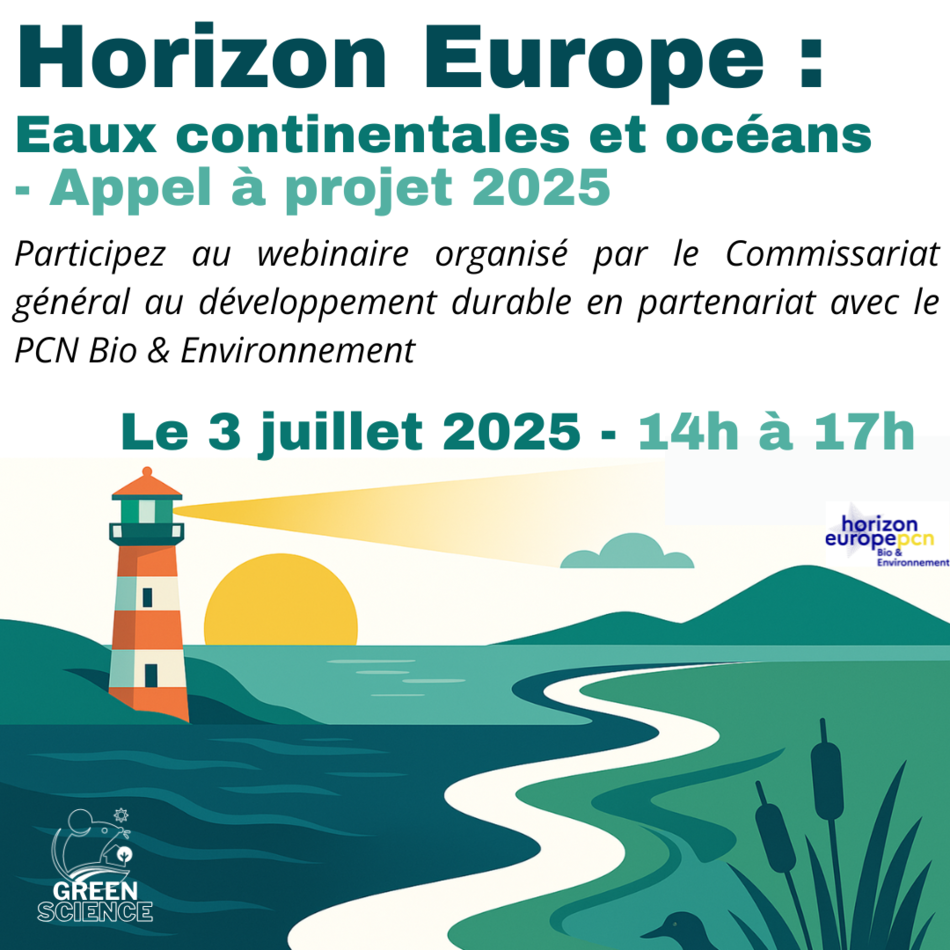Expected Outcome:
Project results are expected to contribute to all of the following expected outcomes:
- Increased market presence and further development of sustainable algae-based solutions and products for various uses and needs (e.g. human consumption, animal feed, pharmaceutical applications, waste-water treatment, innovative, circular and sustainable textiles applications or applications for agriculture);
- Enhanced knowledge base on algae-based solutions and products expected to reach European markets in the short to medium term;
- Enhanced public awareness and understanding of consumer acceptance issues of new algae based products:
- Identified and reduced market-entry barriers and barriers to uptake and scale up innovative and sustainable algae-based solutions and products
- Expansion and integration of innovative and circular industrial ecosystems and industrial clusters[1] by bringing innovative and sustainable algae-based solutions and products to the market, integrating and linking up actors throughout the value chain to explore synergies.
Scope:
Proposals are expected to show the way for innovative and sustainable algae-based solutions and products for uses such as human consumption, animal feed, pharmaceutical applications, waste water treatment, innovative, circular and sustainable textiles applications or applications for agriculture to the market. Algae-based products and solutions for energy applications are excluded from the scope of the topic.
The projects will address all following issues:
- Develop and demonstrate innovative and sustainable algae-based applications and assess their sustainability and circularity along the whole value chain;
- Identify technological, regulatory, economic and other barriers to bring algae-based products or solutions into the market and propose measures to overcome them, including where suitable through the use of regulatory sandboxes;
- Develop and test commercialisation strategy for algae-based innovative products or solutions for applications for human consumption, animal feed, pharmaceutical applications, water treatment, innovative, circular and sustainable textiles applications and for agriculture;
- Address cost-efficiency and cost reduction for algae transformation and processing;
- Bring together relevant actors and fora[2] to establish an integrated, dynamic and circular industrial ecosystem around innovative algae-based products or solutions, involving when relevant, cluster organisations of industrial clusters/ecosystems and/or smart specialisation regions[3] .
Interdisciplinary approaches and close cooperation between researchers, academia, algae aquaculture industry, and industries developing innovative and sustainable algae-based solutions and products, as well with users and consumers of those products and solutions will be fundamental to the development, introduction and acceptance of these products in the market.
Proposals should build on research and innovation projects’ results in the current and previous EU framework programmes, such as but not limited to Horizon 2020, LIFE, EMFF and its continuation the European Maritime, Fisheries and Aquaculture Fund, the Knowledge Innovation Community on food, and other EU funding streams as well as national, regional and cross-border programmes in the Baltic and North sea basins and the activities of the Sustainable Blue Economy Partnership.
Proposals need to build in capacity to reach local/regional and national systems of multi-stakeholders and to enhance their interconnections at basin scale. Multi stakeholder engagements will require active participation from academia to research performing organisations, from citizens to civil society, from young innovators to start-ups, SMEs and other businesses.
Projects funded under this topic will:
- build links with other Mission activities and other relevant activities within the lighthouse and its area to maximize synergies, as well as with the other Mission lighthouses;
- build links with the Mission implementation monitoring system that will be part of the Mission Implementation Support Platform and with the Baltic and North sea basin lighthouse support facility and platform, for reporting, monitoring and coordination of all relevant implementation activities in the lighthouse area;
- support the Ocean and water knowledge system, in particular by contributing to monitoring, modelling and knowledge creation and data
A strong communication component and an active involvement of stakeholders, including from the aquaculture and algae industry, relevant business organisations, consumers and users and NGOs, in a co-creation approach is essential for the uptake of the produced outputs. Training and education activities should be included. Market analysis and commercialisation strategies (customer identification, distribution, branding etc.) will be essential.
The outcomes should address the European Green Deal[4] objectives, the Farm to Fork Strategy for a fair, healthy and environmentally friendly food system[5], the EU Bioeconomy Strategy[6], the Communication on a new approach for a Sustainable Blue Economy[7] and the Strategic guidelines for a more sustainable and competitive EU aquaculture[8], the Marine Strategy Framework Directive[9] and the Maritime Spatial Planning Directive[10].
SMEs, early-stage business and scale-ups involved in Mission projects entailing innovative, scalable and sustainable business ventures from traditional and emerging blue economy sectors are invited to join the BlueInvest community and benefit from the BlueInvest Fund[11].
Proposals are expected to show how their activities and results will achieve the Mission’s objectives, in line with the timeframe of the Mission phases, i.e.: by 2025 for the ‘development and piloting’ phase and 2030 for the ‘deployment and upscaling phase’.
[1] Industrial clusters defined as per Homepage | European Cluster Collaboration Platform
[2] Such as the Blue Bioeconomy Forum.
[3] https://clustercollaboration.eu/ and https://s3platform.jrc.ec.europa.eu/
[4] https://ec.europa.eu/info/strategy/priorities-2019-2024/european-green-deal_en
[5] https://ec.europa.eu/food/horizontal-topics/farm-fork-strategy_en
[6] https://ec.europa.eu/info/research-and-innovation/research-area/environment/bioeconomy/bioeconomy-strategy_en
[7] COM/2021/240 final
[8] COM/2021/236 final
[9] https://ec.europa.eu/environment/marine/eu-coast-and-marine-policy/marine-strategy-framework-directive/index_en.htm
[10] https://ec.europa.eu/oceans-and-fisheries/ocean/blue-economy/maritime-spatial-planning_en
[11] BlueInvest provides equity from the European Maritime, Aquaculture and Fisheries Fund, matching guarantees from InvestEU, capital from the European Invest Fund and its parent the European Investment Bank to venture capital or impact funds who will crowd in other investments. See: https://webgate.ec.europa.eu/maritimeforum/en/frontpage/1451





